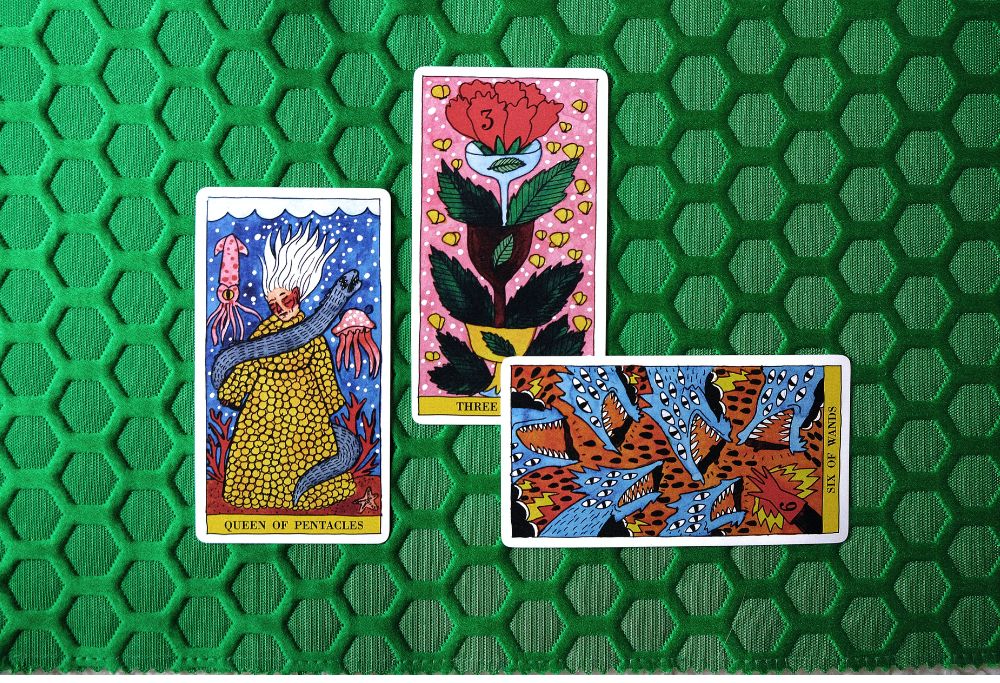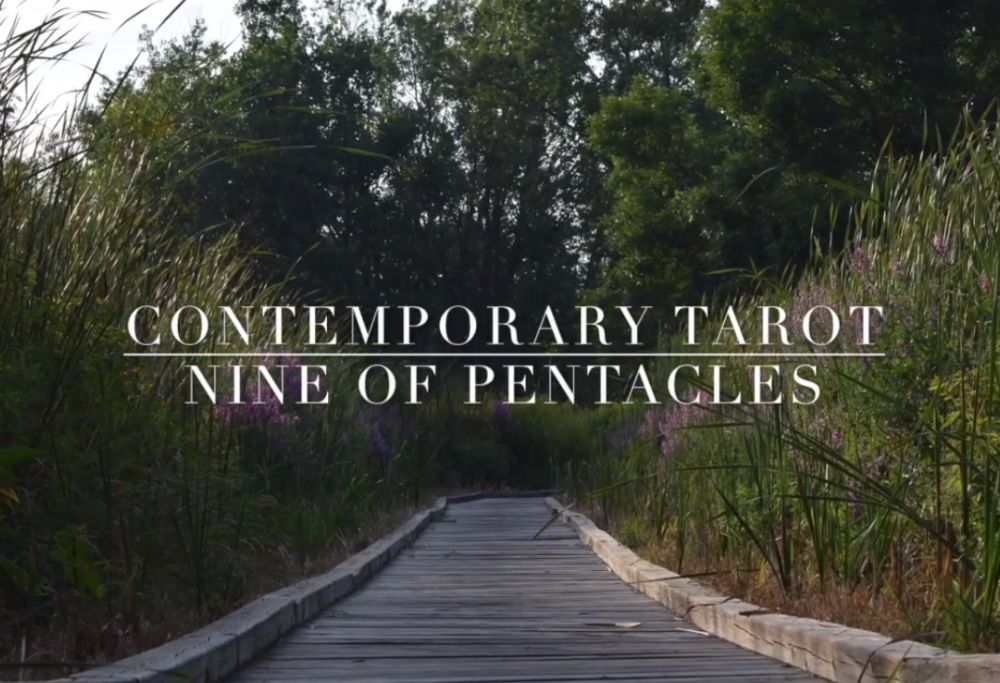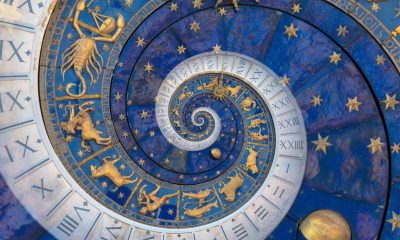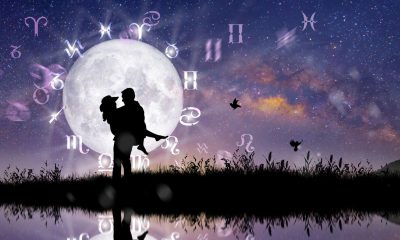Astrology
Understanding How Belief in Astrological Principles May Conflict With Christian Ideology

Humans are naturally drawn to the mysterious and the unknowable and often seek answers that may provide us with an understanding of the direction we are heading in our lives. Astrological Principles, which is the study of the motions and the relative places of celestial bodies is a system that has gained immense recognition over the past few many years. But, its beliefs often clash with the fundamentals of Christianity which can lead to uncertainty and doubt among believers.
In this article, we’ll explore the various aspects of astrology, their role in our daily lives and why the beliefs in astrological principles might not fit with Christian doctrine. If you’re a fervent Christian or an astrologer who is fervently committed or simply interested in the subject This article is sure to be an informative study.
A Christian restriction against the worship of the stars and planets
As per Deuteronomy from The Bible, Moses warned the children of Israel against divining planets and stars that were believed to be polytheistic. In accordance with one of the commandments, Moses specifically advised against worshipping the moon, sun stars, the sun, and other celestial objects. Christianity holds to the belief of the existence of a single God and therefore, the emphasis placed by astrology on the omniscience and power of the planets, stars, or the moon are directly in contradiction to Christian fundamentals. People who adhere to Christianity should stay clear of astrological principles due to its contrary convictions that could cause the practice to be contrary to their religious beliefs.
The astrological roots are in the polytheistic belief system
Astrology is rooted in polytheistic beliefs that were practiced by the Babylonians and later adopted by the Greeks. The concept of the zodiacal belt and its symbols was created by the Greeks and they correlated the signs with their popular anthropomorphic gods from mythology. Astrologers say that the person’s experience fate, character and personality are contingent on the location of celestial bodies at the period that they were born.
Astrology has enthralled people by using reliable scientific information and methods however it has also incorporated it with fantasy notions. Christianity and Judaism prior to it emphasized faith in the Omniscience as well as the Omnipotence of one God which eventually became incompatible with astrology, which emphasized the impact of the moon, stars and planets on humans.
The basic concepts of modern astrological principles can be traced back to the beginnings of Greece
The origins of modern astrology can be traced to the early Greeks who devised concepts of a zodiacal belt and its symbols and compared their own mythological gods as anthropomorphic along with the star gods of Babylon. Astrologers believe that every aspect of the person, such as their personality and life experiences depend on the arrangement of the sky at the exact time when they are born. Astrology is based on valid scientific information and methods however, it also mixes these with speculative ideas in its overall design. The basic tenets associated with astrology within the West can be traced back to the astrological principles model that was developed in ancient Greece.
Astrologers believe that the arrangement that the sky is in at the time of birth affects an individual’s personality and character
Astrologers believe that the positions of the planets and stars in the moment of someone’s birth determine their personality and their future. This notion is at odds with Christian beliefs that state that God is the only one who has supreme authority over individuals’ lives. Christian Scriptures clearly state the astrology practice is an unbiblical type of witchcraft, and is a crime. The adherents of those who adhere to the Christian belief are taught to trust in prayer and God’s guidance, instead of astrological predictions. In spite of the differences, certain individuals might hold both convictions. However, the Christian doctrine of faith in God and avoiding astrology may cause a problem for their astrological principles beliefs.
Astrology is a challenge to traditional faith by providing guidance in everyday affairs, as well as answering questions regarding the universe.
Astrology has long been a source of dispute among a number of religions, including Christians. Contrary to traditional religious beliefs, astrology can provide advice on how to live your life, addressing questions about the universe and providing explanations for specific phenomena. This is however in opposition to the Christian belief that God has the ultimate control and direction over everything. Additionally, astrology is often associated with divination, and therefore is viewed as an act of worship and can be a source of confusion for Christian followers. So, many Christians oppose astrology since it contradicts their traditional religion and can be considered to be a type of disobedience to God.
Christianity is a religion that emphasizes the power of God. Christianity emphasizes the omnipotence of God and astrology emphasizes the power of celestial bodies.
Christianity is a religion that believes in a single, all-powerful God who is sovereign over all creation, whereas it is astrology that focuses on the power of celestial bodies on the fate of humans. This fundamental difference in the worldview is a cause of concern for certain Christians who believe that astrology is incompatible with their beliefs. Although both can be compatible for certain people, others might consider that astrology places too an focus in the power and authority of planets and stars and erodes the power of God. It is ultimately the responsibility of each person to determine the best way to reconcile their beliefs in astrology with their Christian philosophy.
The scientific validity of Astrology is questioned by physical scientists
There is an ongoing debate among physical scientists about the scientific validity of astrology. Certain scientists who work in areas such as biomagnetic and astrobiotics are firmly committed to the idea that human beings are within an electric force which celestial bodies may influence. But the extent and nature of this influence is the main difference between physical scientists from the astrologers. While astrology could incorporate methods and data from science however, it has mingled with speculative and imaginative ideas. It also challenges traditional religious beliefs, such as Christianity by providing answers to the meaning of life and claims to offer guidance in everyday choices.
Faith in astrological forecasts could be the cause of a self-fulfilling prophecy
Faith in astrological predictions could result in an unfulfilling prophecy. If someone reads their horoscopes, they might not be aware of how they shape their actions and choices in accordance with what was stated. This can result in an assumption bias, where people only perceive what they were taught to expect and could make decisions that are in line with the horoscope but without fully understanding that they are doing so.
It can also result in an absence of personal accountability since the individual may blame their choices or failures on their birth sign or the alignment of planets instead of taking responsibility of their actions. This can be a reversal of Christian philosophy, which stresses the individual’s freedom of choice and accountability.
Astrology is not a religion that requires an idolatry of one Godhead or figurehead
Astrology is a religion that does not require worshipping one divinity or figurehead. It assumes that an intelligent and deliberate force controls the motions of the heavens and earth. Contrary to many religions that are organized it is not a religion that has gender-based or homophobic restrictions in the field of astrology.
The old astrological principles metaphors, including feminine and masculine energies, are now reinterpreted as energetic and receptive energy that are not gendered in their manifestation. Astrology gives everyone an influential seat in the world’s table. Just like each star and planet is a part of the universe. It is a universal faith system that gives people the feeling of belonging as well as belonging and coping methods for pain and loss.
Religion and Astrology are often compatible and complement each other. beliefs systems.
Religion and astrological principles can happily coexist as faith systems. In spite of certain religious individuals disapproving of astrology as being incompatible, the past has proven that the study of planets and stars has had a profound impact on religious beliefs across the globe.
Astrology requires an unlimitable and purposeful mind that runs through the universe, recognizing the importance of religion as well as spirituality by the significance of the 12th and 9th houses as well as the archetypes of these planets Jupiter, Saturn, and Neptune. Astrology doesn’t require the idolatry of one god or figurehead or figurehead, nor does it carry the burden of oppressive rules. A reputable Astrologer can assist a person increase their understanding of their religion.
Astrology
Archetypal Lovers: Exploring the Timeless Romantic Pairings

Introduction
Love has been a timeless and universal theme in human culture, and throughout history, various archetypal lovers have captured our imaginations. These iconic romantic pairings have been depicted in literature, art, and mythology, resonating with people across generations. In this article, we will delve into the concept of archetypal lovers, exploring their significance, characteristics, and enduring appeal.
1. The Definition of Archetypal Lovers
Archetypal lovers are recurring themes or patterns in romantic relationships that embody deep and fundamental human desires and emotions. These patterns are embedded in our collective unconscious and are reflected in the stories we tell about love.

2. The Origin of Archetypes in Love
Archetypes of love can be traced back to ancient myths and folklore, where certain romantic pairings emerged as powerful symbols of human yearnings and experiences.
3. The Hero and the Damsel in Distress
One of the classic archetypal lovers is the hero and the damsel in distress. The hero, often depicted as brave and noble, rescues the damsel in distress, who is in a vulnerable or perilous situation. This archetype signifies the human desire for protection and the triumph of good over evil.
4. The Star-Crossed Lovers
The star-crossed lovers, as popularized by William Shakespeare’s “Romeo and Juliet,” represent love that is thwarted by external circumstances, such as feuding families. This archetype embodies the intensity of young love and the tragic consequences of societal barriers.
5. The Forbidden Love
Forbidden Love explores the allure of relationships that defy societal norms or face opposition from others. This archetype delves into the complexities of human emotions and the courage to pursue love despite adversity.
6. The Opposites Attract
The opposites-attract archetype portrays the magnetic pull between individuals with contrasting personalities, backgrounds, or beliefs. This pairing highlights the idea that differences can complement each other and lead to personal growth.
7. The Eternal Soulmates
Eternal soulmates are two individuals destined to be together throughout multiple lifetimes. This archetype symbolizes the profound connection and spiritual bond that transcends time and space.
8. The Transformational Love
Transformational love involves personal growth and change through the influence of a romantic partner. This archetype emphasizes the power of love to inspire positive transformations in individuals.
9. The Sacrificial Love
Sacrificial love explores the willingness to make significant sacrifices for the well-being and happiness of a loved one. This archetype demonstrates the depth of devotion and selflessness in romantic relationships.
10. The Unrequited Love
Unrequited love represents the pain and longing of loving someone who does not return the same feelings. This archetype delves into themes of rejection, heartbreak, and unfulfilled desires.
11. The Love Triangle
The love triangle involves three individuals entangled in a complex web of emotions, creating tension and drama in the narrative. This archetype delves into themes of jealousy, rivalry, and difficult choices.
12. The Mature Love
Mature love is characterized by a deep emotional connection, understanding, and mutual respect between partners. This archetype explores the evolution of love as it matures over time.
13. The Love Beyond Time and Space
Love beyond time and space transcends physical limitations and explores the idea of connections that exist beyond the earthly realm. This archetype delves into themes of destiny and cosmic love.
14. The Archetypal Lovers in Contemporary Media
In modern storytelling, archetypal lovers continue to captivate audiences in various forms, from books and films to TV shows and social media. These timeless themes persist because they tap into our deepest desires and emotions.
15. Conclusion
Archetypal lovers hold a special place in human hearts, as they represent the universal yearnings and experiences surrounding love. From the hero and the damsel in distress to the love beyond time and space, these romantic pairings have left an indelible mark on our cultural consciousness.
Astrology
The Lover Archetype: Understanding the Depths of Passion and Connection

Introduction
Love is a complex and multifaceted emotion that has captivated humanity since time immemorial. In the realm of psychology and mythology, the concept of archetypes helps us understand the patterns and traits that define human behavior. One such archetype is “The Lover,” which embodies the essence of passion, connection, and desire. In this article, we will delve deep into the lover archetype, exploring its definition, significance, and how it manifests in various aspects of life.
Defining Lover Archetype
What is an Archetype?
Archetypes, as proposed by Swiss psychiatrist Carl Jung, are universal symbols and themes that exist in the collective unconscious of all human beings. They shape our thoughts, feelings, and actions, influencing how we perceive the world around us and interact with others. Archetypes are the blueprints of human behavior and hold great symbolic meaning.
Exploring the Lover Archetype
Lover Archetype represents an intense and passionate aspect of human nature. It is associated with the pursuit of love, beauty, and sensuality. Individuals embodying Lover Archetype are driven by deep emotions and yearn for profound connections with others and the world.
Common Traits of the Lover Archetype
People influenced by the Lover Archetype often exhibit traits such as empathy, sensitivity, and a heightened appreciation for aesthetics. They are romantic at heart, valuing emotional intimacy and cherishing the bonds they form with loved ones.

The Lover Archetype in Mythology and Literature
Examples of the Lover Archetype in Myths
Throughout mythological tales from various cultures, we encounter characters embodying Lover Archetype. From Greek mythology’s Eros, the god of love, to the alluring sirens luring sailors in the Odyssey, Lover Archetype takes many captivating forms.
Beloved Characters in Literature Exhibiting the Lover Archetype
In literature, Lover Archetype is evident in characters like Shakespeare’s Romeo and Juliet, who exemplify the intensity of love and its tragic consequences. Countless other novels and poems feature protagonists driven by the allure of passion and connection.
Lover Archetype in Psychology
Carl Jung’s Collective Unconscious and Archetypes
Carl Jung’s groundbreaking theory of the collective unconscious highlights the presence of archetypes in the human psyche. Lover Archetype is a vital component of this shared unconscious, shaping our relationships and emotional experiences.
Love and Attachment Styles
Psychologists study the impact of archetypes on love and attachment styles. Those influenced by the Lover Archetype may exhibit styles characterized by warmth, closeness, and emotional expression.
Impact of the Lover Archetype on Relationships
Understanding the Lover Archetype can shed light on the dynamics of romantic relationships. The desire for intimacy and connection can lead to fulfilling partnerships or, if unbalanced, create challenges.
Embracing Lover Archetype in Daily Life
Cultivating Self-Love and Self-Compassion
The journey of the Lover Archetype begins with self-love. Practicing self-compassion and acceptance allows individuals to form healthier connections with others.
Nurturing Romantic Relationships
For those influenced by the Lover Archetype, nurturing romantic relationships is essential. They can enhance intimacy by expressing their emotions and needs openly.
Embracing Passion in Hobbies and Interests
Lover Archetype often fosters a deep appreciation for beauty and creativity. Embracing passions in hobbies and interests can bring joy and fulfillment to life.
The Shadow Side of the Lover Archetype
Obsession and Possessiveness
Unbalanced expressions of Lover Archetype can lead to obsession and possessiveness, causing strain in relationships.
Fear of Abandonment
Individuals strongly influenced by the Lover Archetype may fear abandonment, influencing their behavior and decision-making.
Balancing Love and Independence
Finding a balance between the desire for love and maintaining individuality is crucial for personal growth and healthy relationships.
The Lover Archetype in Pop Culture
Iconic Movie Characters Representing the Lover Archetype
In popular culture, numerous movie characters embody the Lover Archetype, showcasing the beauty and complexity of love.
Musicians and Artists Embodying the Lover Archetype
Musicians and artists often draw inspiration from Lover Archetype, channeling their emotions into their creative works.
Finding Your Dominant Archetype
Reflecting on Your Traits and Desires
Understanding your dominant archetype, including the Lover, involves introspection and reflection on your emotions and desires.
Seeking Guidance from a Professional
A professional therapist or counselor can provide valuable insights into your archetypal inclinations and help navigate your emotional landscape.
Conclusion
Lover Archetype represents the profound human desire for connection, love, and beauty. As a symbol deeply ingrained in the collective unconscious, it influences our relationships, passions, and creative expressions. By embracing Lover Archetype with self-awareness and balance, individuals can forge meaningful connections, find joy in life’s aesthetics, and experience the transformative power of love.
Astrology
Nine of Pentacles Love: Embracing Independence and Deepening Connections

Introduction
Welcome to the world of tarot and love, where the cards can offer valuable insights into relationships and self-discovery. In this article, we will explore the significance of the Nine of Pentacles in love and how it can guide us in fostering meaningful connections and personal growth. Whether you’re single, in a relationship, or healing from past heartbreaks, the wisdom of the Nine of Pentacles in love can provide guidance and clarity on your romantic journey.

Understanding the Nine of Pentacles in Love
What are the Nine of Pentacles?
The Nine of Pentacles is one of the 78 cards in a traditional tarot deck, representing abundance, luxury, and self-sufficiency. It portrays a person surrounded by nature, symbolizing their independence and connection to the material world.
The Symbolism Behind the Card
Each element in the Nine of Pentacles in Love holds symbolic meaning, from the lush garden to the elegant clothing. Understanding these symbols can enhance our interpretation of the card’s significance in love and relationships.
The Tarot and Love
Before delving into the specifics of the Nine of Pentacles in Love, let’s explore how tarot cards, in general, can offer valuable insights and guidance in matters of the heart.
The Nine of Pentacles in Love
Explore the profound lessons the Nine of Pentacles in love offers to enrich your love life and personal journey.
Embracing Independence
Learn to celebrate your independence and embrace your own company before seeking a romantic partner.
Appreciating Your Own Worth
Understand your true value and worth, fostering healthier relationships with a solid foundation of self-love.
Finding Self-Sufficiency in Love
Discover the beauty of interdependence and how two self-sufficient individuals can create a strong bond.
Building Strong Foundations
Learn how the Nine of Pentacles in love encourages you to build a solid foundation for a lasting and meaningful relationship.
Taking Time for Yourself
Explore the importance of self-care and finding time for personal growth, even within a committed relationship.
Nurturing Relationships
Discover how the Nine of Pentacles in love emphasizes the significance of nurturing love and building emotional intimacy.
Signs and Aspects
Examine the Nine of Pentacles in love connections to various signs, elements, and astrological aspects.
Nine of Pentacles and Compatibility
Discover the compatibility of this card with different zodiac signs and its implications on relationships.
Reversed Card Interpretation
Understand the reversed position of the Nine of Pentacles and its potential impact on love and romance.
Upright Card Interpretation
Explore the upright position of the Nine of Pentacles and its positive influence on relationships.
Astrological Associations
Uncover the astrological signs associated with the Nine of Pentacles and how they can shape romantic dynamics.
Numerology and the Nine of Pentacles
Learn about the numerological significance of the number nine and its impact on this tarot card’s meaning in love.
Elemental Connection
Discover the Earth element’s influence on the Nine of Pentacles and its representation of grounded love.
Healing from Past Relationships
Find guidance on healing and growing from past relationship experiences to open your heart to new love.
Letting Go of Baggage
Explore the importance of releasing emotional baggage to welcome fresh and meaningful connections.
Learning from Past Mistakes
Understand how past relationship experiences can serve as valuable lessons for future romantic endeavors.
Fostering Emotional Growth
Discover how healing from past hurts can lead to emotional growth and healthier relationship patterns.
Opening Up to New Love
Learn to be open to new romantic opportunities without being hindered by past disappointments.
Reconnecting with Yourself
Explore the journey of reconnecting with your true self after experiencing heartbreak.
Navigating Long-Distance Relationships
Gain insights and valuable tips for sustaining a loving connection when distance separates partners.
Communication in Absence
Discover effective communication strategies to maintain intimacy and connection in a long-distance relationship.
Trust and Security
Explore ways to build and maintain trust and security despite physical distance.
Planning Visits and Shared Goals
Learn how to plan visits and set shared goals to keep the relationship strong.
Managing Jealousy and Insecurities
Address jealousy and insecurities that may arise in long-distance relationships and find healthy ways to cope.
Sustaining Emotional Intimacy
Discover how to sustain emotional intimacy and closeness despite the physical distance.
Making It Work: Tips and Advice
Practical tips and advice for making a long-distance relationship thrive.
Cultivating Self-Love and Confidence
Explore the importance of self-love and confidence in attracting and maintaining fulfilling relationships.
The Power of Self-Affirmations
Discover the transformative impact of positive self-affirmations on self-love and self-esteem.
Prioritizing Self-Care
Learn the significance of self-care in fostering a healthy and confident mindset.
Seeking Personal Growth
Explore the journey of personal growth and self-improvement in the context of love.
Overcoming Insecurities
Address common insecurities and learn strategies to overcome them in relationships.
Embracing Your Authentic Self
Understand the value of embracing your authentic self and letting go of pretenses in love.
The Nine of Pentacles and Marriage
Explore the dynamics of the Nine of Pentacles in the context of marriage and long-term commitment.
Creating a Strong Partnership
Learn how to build a strong partnership based on mutual respect and admiration.
Balancing Independence and Togetherness
Discover the art of balancing individual independence with togetherness in a marriage.
Financial Considerations
Address financial considerations and planning for a secure future together.
Preparing for Commitment
Explore the process of preparing for commitment and discussing future plans with your partner.
Supporting Each Other’s Goals
Learn how to support and encourage each other’s personal and professional goals.
Coping with Heartbreak and Loss
Find solace and guidance in coping with heartbreak and navigating the healing process.
Embracing Grief and Healing
Explore the healing process and the importance of embracing grief after a breakup or loss.
Seeking Support from Loved Ones
Discover the power of seeking support from friends and family during challenging times.
Focusing on Personal Growth
Understand the transformative potential of focusing on personal growth after heartbreak.
Allowing Yourself to Love Again
Learn to open your heart to love again and take a chance on new relationships.
Finding Love as a Single Parent
Explore the unique journey of finding love as a single parent and nurturing both parental and romantic roles.
Honoring Your Parenting Role
Discover the importance of honoring your role as a parent while seeking romantic connections.
Being Open to Love as a Parent
Explore the challenges and rewards of being open to love as a single parent.
Balancing Parenting and Dating
Learn how to balance parenting responsibilities with dating and building new relationships.
Communicating with Your Child(ren)
Explore the importance of open communication with your child(ren) about dating and relationships.
Introducing Your Partner to Your Child
Discover valuable tips for introducing your new partner to your child(ren) in a positive and healthy way.
Conclusion
In the journey of love, the Nine of Pentacles in love teaches us the significance of embracing our independence, finding self-sufficiency, and nurturing our relationships. Whether you are seeking new love, healing from past heartbreak, or navigating a long-term commitment, the wisdom of the Nine of Pentacles in love can guide you toward a more fulfilling and love-filled life.
Remember, every step you take on this path is an opportunity for growth and self-discovery, allowing you to create lasting and meaningful connections with others.
-

 Astrology3 years ago
Astrology3 years agoThe Lover Archetype: Understanding the Depths of Passion and Connection
-

 Astrology3 years ago
Astrology3 years agoHow Do I Get My Ex Back?
-

 Astrology3 years ago
Astrology3 years agoWhat personality would suit each major arcana tarot card?
-

 Astrology3 years ago
Astrology3 years agoArchetypal Lovers: Exploring the Timeless Romantic Pairings
-

 Astrology3 years ago
Astrology3 years agoRecognizing Vesta in Astrology
-

 Astrology3 years ago
Astrology3 years agoThe Role of Astrology in Self Discovery: How it can help you understand yourself better
-

 Astrology3 years ago
Astrology3 years agoAre there any astrological relationship patterns?
-

 Astrology3 years ago
Astrology3 years agoThe connection between astrology and feng shui

